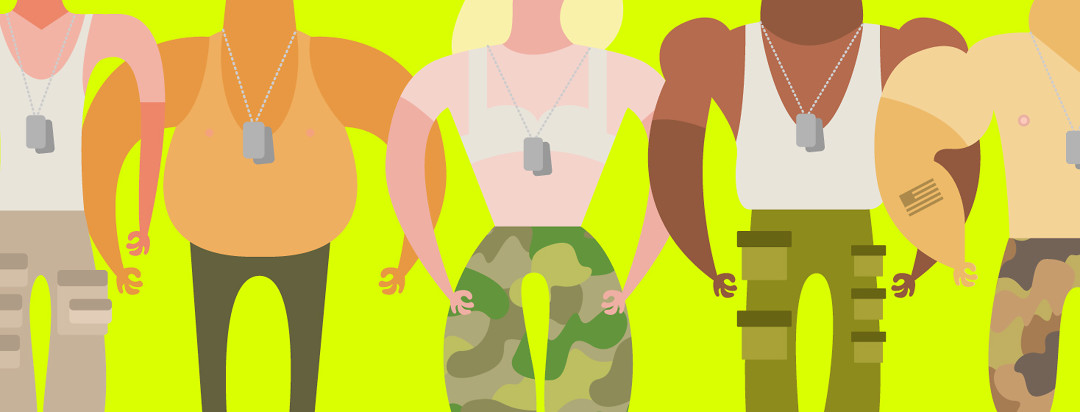SPF, the Military's Best Defense
My wife, Kathy, grew up in a military home. Her dad was a full colonel in the United States Army and was stationed around the world over his career. Kathy lived in some very hot and sunny locations. She called places like El Paso, San Antonio, Fort Polk, Louisiana, and Dugway, Utah, home. Long, hot summers were a way of life in service. Sunshine was plentiful.
Serving in the sun
It seems like Kathy and her family were not alone. Other branches of the armed forces have bases in a variety of hot spots in California, Florida, and North Carolina to name a few and this does not even take into consideration overseas' assignments in the Middle East, Latin America, and Africa. Where there are soldiers, sailors, Marines, and airmen, there is a lot of sun. So, what have been the consequences?
Sun damage to our military
According to the latest research, one of the biggest challenges our military faces has nothing to do with terrorism, weapons of mass destruction, or a nuclear threat. It is our sun and its rays. According to a recent study published by the Journal of the American Academy of Dermatology, our service men and women are at risk.1
Those who served at higher risk
The research went as far back as military personnel who fought in World War 2 and found that those who had served in tropical climates were particularly at risk. It also found that those serving in the Air Force had the highest rates of skin cancer among all military branches. The reasons for this include lack of sufficient sun protection and increased sun exposure, which makes intuitive sense and leaves our service members at a higher level of risk compared to those who are not in the military.1
Mitigating the risk
A recent article from the American Academy of Dermatology (AAD) gives more clarity to the issue. According to the article, sun protection is not a high priority among active duty personnel. Many commonly used sun protection strategies, such as wearing protective clothing and the consistent application of sunscreen are just not feasible.2 Sadly, it seems that we can protect our service to some degree from shrapnel, but not UVA rays?
Encouraging self-checks for soldiers
The article does encourage service personnel to do regular self-checks to help detect skin cancer issues when they are most treatable. While this may not help lower the risk of sun exposure, it may help in mediating its risk. So, educating our men and women in uniform and regular check-ups must be of the highest priority.
Sunscreen mail call
I know that those in the service love to receive "goodie bags" from home. Whether it be photos, candy, gum, or whatever, mail from loved ones has always been much appreciated by those serving abroad. It seems now that a little tube of sunscreen or highly rated SPF lip balm may be just as effective in saving our soldiers as flak jackets and helmets. We can serve those who protect us by helping to protect them from the effects on prolonged sun exposure.
Community Poll
How often to do you speak to family and friends about skin cancer?

Join the conversation